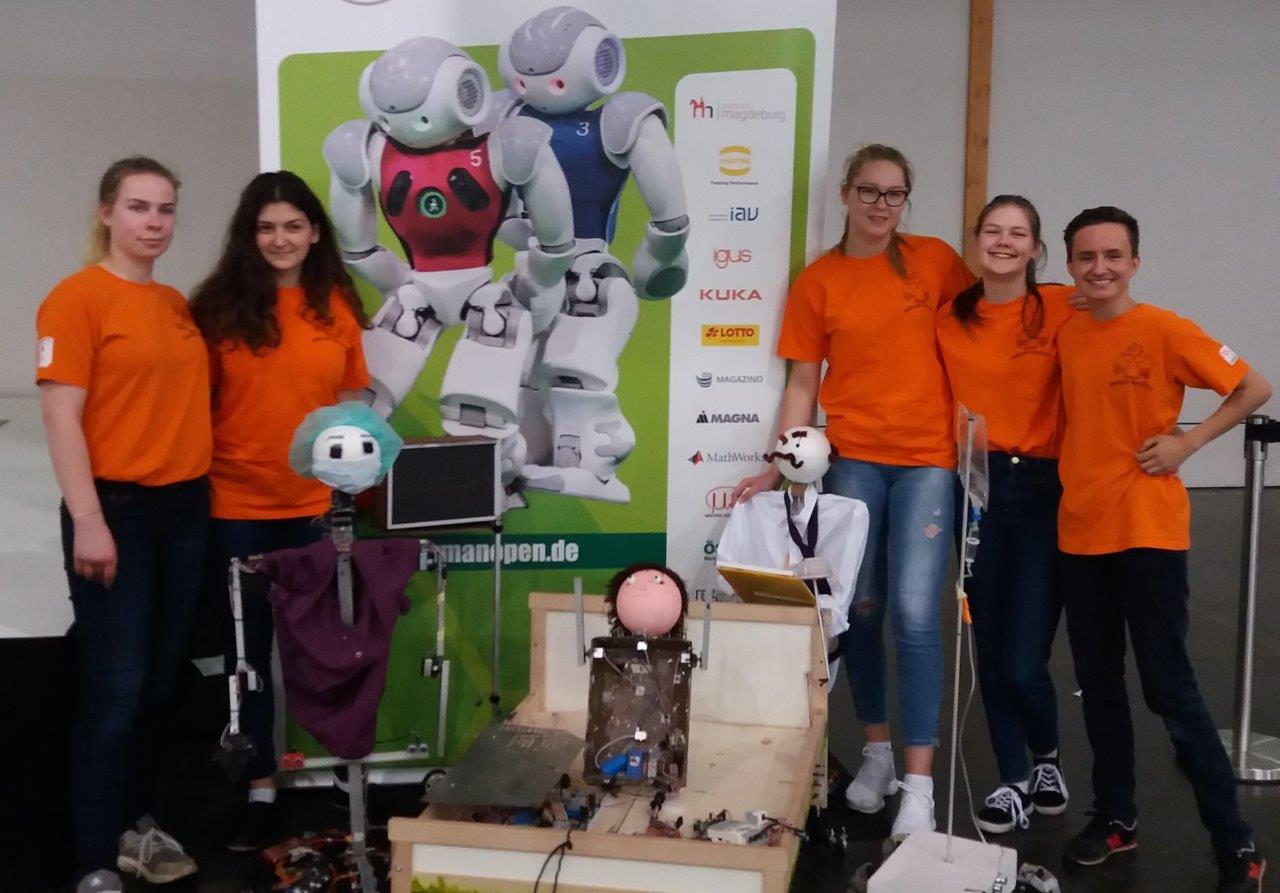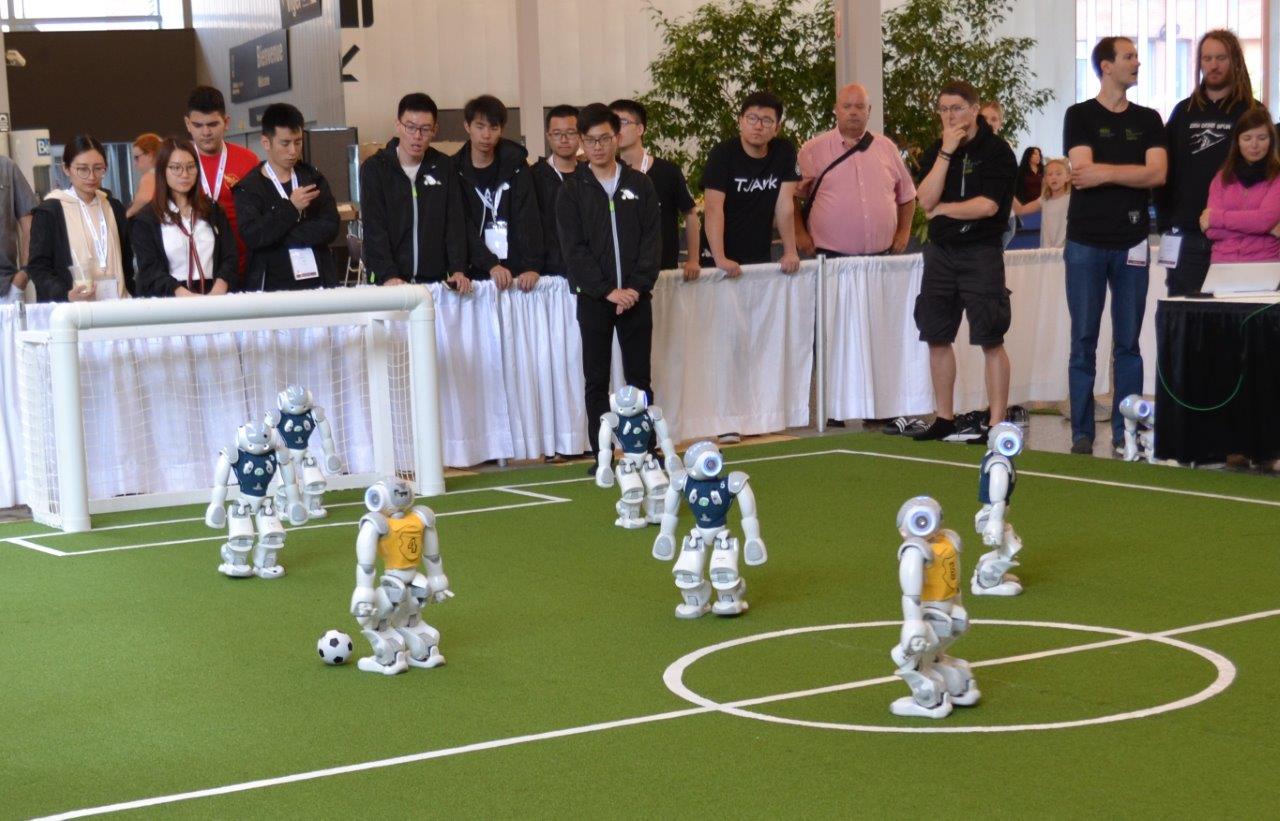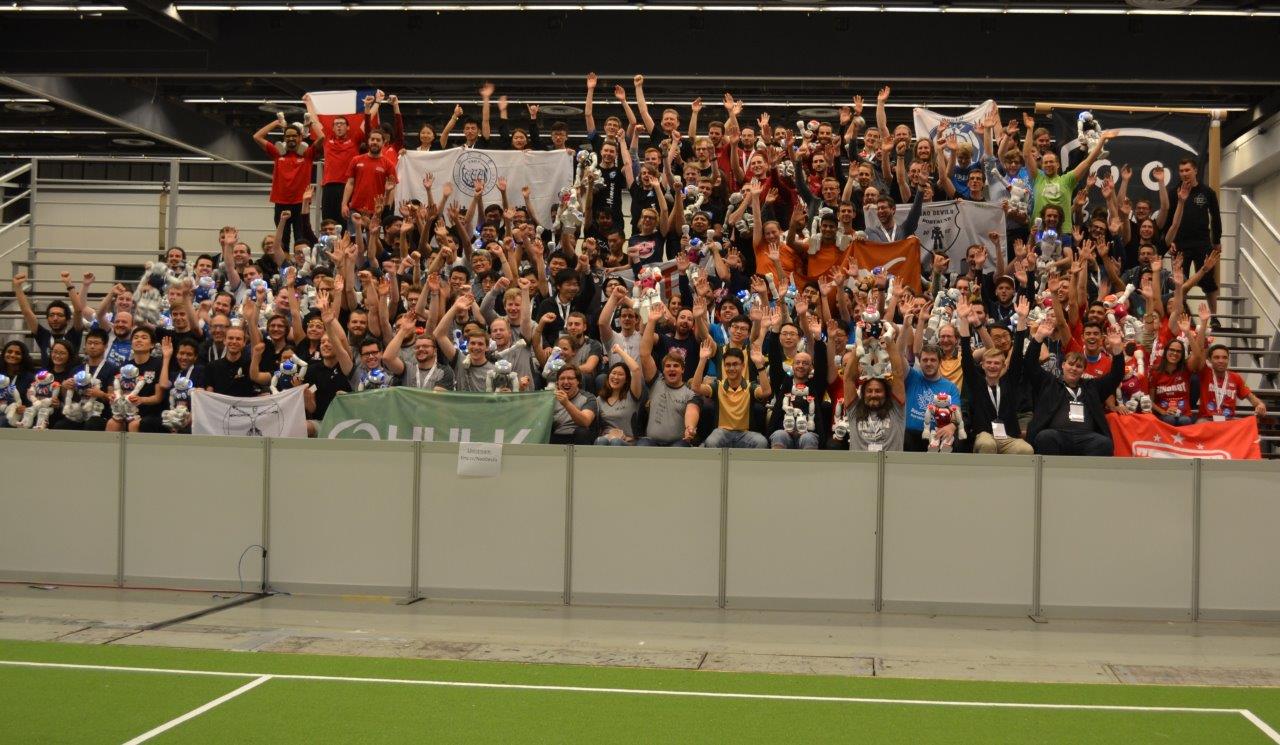
RoboCup 2018 – Where Fun and Science Meet
As most eyes were on the FIFA WorldCup in Russia, Montreal had its own World Cup from June 16 to June 22 – the RoboCup 2018.
RoboCup 2018 - Where Fun and Science Meet
In this competition, founded in 1997, there are no humans fighting for the championship, instead robots compete in different disciplines. There are not only games like in sports tournaments, there are also competitions in the fields of “Rescue” and “Home” where robots are tested in specific situations.

This year, the event took place in Montreal, Canada. The German team “Berlin Eagles” was very successful in the “Junior OnStage” League. In this competition, the robots had to present a little performance. Before that, the team and its robots had to pass a technical presentation as well as a technical interview, where the team members had to prove their knowledge. The Berlin Eagles convinced the public and the jury and won the title in this league.
With regards to robot-soccer, the best-known competition of the RoboCup games and conference, the focus is on the Standard Platform League. In this competition, all teams have to use the same robots and bring them to life via the software they develop for them. Every year, the programming becomes more challenging as the plays more closely mimic real ones. Therefore, teams have to develop new algorithms to ensure that their robots are able to keep playing soccer.
Even though some rules are the same as in real soccer, the robo-worldcup is not organized the same way as the FIFA world cup: before the final rounds start, there is not only one group phase, but several of them, to make sure that every team experiences enough matches to figure out potential problems and to give them the possibility to fix them between matches (within reason).
Six German teams participated in this year’s RoboCup in Montreal, two of which are now the new world champion and vice-champion: HTKW Leipzig and B-Human (Bremen). Interestingly, there was also a Canadian team, from the École de Technologie Supérieur in Montreal, participating in the SPL-competition – this year for the first time.

Apart from the sports and fun factor, RoboCup is also a perfect opportunity for scientific exchange. The RoboCup competitions are part of a worldwide, interdisciplinary research project in the fields of AI and robotics. One of the key drivers for exchange and cooperation is the fact that teams are asked to publish their source codes (“software”) after the competitions.
The Canadian and German teams announced that they want to participate in next year’s RoboCup in Sydney, Australia. SoGerman wishes good luck to the teams of both nations!
Apart from the sports and fun factor, RoboCup is also a perfect opportunity for scientific exchange.